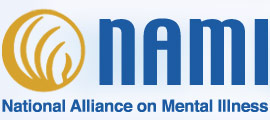From Minnesota Health Care News, February 2007
By Mark Anderson
The human brain is a wonder to behold. It brings us consciousness and insight, it invents science and philosophy, and creates the performance of the Olympic athlete and the jazz musician. But like any other organ of the body, it can suffer from illnesses and injuries. When the brain gets in trouble we see the symptoms of mental illness. And when the individual struggling with these symptoms becomes overwhelmed, a mental health crisis can occur.
When people in your family or community experience a mental health crisis, they might be reacting to any number of physical and mental conditions. They might hear voices as if listening to a non-existent radio or as if there is another person inside their head. They might see beings or other objects that are not real, or experience changes in perception, (e.g., of colors). They might be having profound delusions such as believing that threatening figures are plotting against them. They might be struggling with severe depression and contemplating suicide. They might be experiencing the high energy, erratic behavior and sleeplessness of mania. Or they might not realize they have memory loss and impulsivity caused by physical or chemical brain trauma.
A mental health crisis can be any one of the scenarios in this broad spectrum because many parts of the brain can be in crisis. And of course these and other symptoms can occur in combination. So there are many behaviors that we might observe in an event known as mental health crisis. Those who are not mental health professionals need not diagnose the illness. Even highly-trained scientists and clinicians struggle to find an accurate diagnosis in many cases.
But we can all help people in crisis by helping them get to the professional help they need. That means helping them find safe transportation to a crisis center equipped to respond to psychiatric illness. In many cases this help can bring the individual back to mental health so they can resume their life, or even find a more fulfilling life.
A crisis in your home or community
If someone exhibits symptoms of a mental health crisis, you should proceed with caution and restraint. In most cases, a person in crisis is very vulnerable and is not a threat to public safety. You may be able to transport the person to the nearest hospital. If you do, be prepared for a long wait, up to eight hours or longer are common. Having you there will help the health care professionals understand the nature of the crisis that brought you to their facility, and you can serve as a valuable advocate for the person in crisis. Don’t be afraid to speak up strongly on behalf of the person you brought in.
In some cases, it is best to seek immediate help. If a weapon is involved or there apprears to be a danger to public safety, then it is appropriate to call 911. The 911 caller should describe the behavior that is observed at the scene and ask the 911 operator to dispatch a mental health crisis responder. It is important to describe the specific behavior because the dispatcher makes an independent assessment whether this is a mental health crisis call. And the more specific the information is, the more likely the responders will be prepared when they arrive at the scene. More and more police departments have CIT (Crisis Intervention Team) officers, specifically trained to respond to mental health crisis calls. And many counties in Minnesota now have Mobile Crisis Teams of mental health professionals. It is likely that the mobile crisis team will have its own phone number independent of the 911 system.
While the responder is on the way to the crisis it is important to make efforts to de-escalate the crisis, if this can be done safely. Express your support and concern to the person in crisis. Listen to his story. Give him space so he doesn’t feel trapped and try to reduce stimulation by limiting the number of people and other distractions. Speak slowly and softly, and avoid touching, shouting or continuous eye contact. When the responders arrive, offer your assistance but let them do what they are trained to do and don’t interfere.
Developing an emergency plan
Before any crisis occurs it is helpful for family members to have developed a plan for handling such an event, similar to handling any health care emergency, but with a focus on the unique aspects of a mental health crisis. Many crises can not be anticipated. But you foresee the possibility of such an occurance with a family member or close friend, you should be prepared. You should create a packet for yourself that includes contact information for a physician and or therapist who knows the person’s health history, the county mobile crisis team, the local police, or other first responders in your community. Mental health responders often have their own phone numbers and sometimes won’t be dispatched through the 911 system.
Each community has a different array of resources to respond to mental illness. Having a conversation with a community mental health center or an emergency psychiatric facility where first responders take those in crisis is an important part of developing a strategy for responding to a mental health crisis.
Prevention: the best outcome
Prevention of the crisis in the first place is the best outcome. Each additional crisis event a person experiences can cause further damage to the brain. And a crisis and the response to the crisis can be unpredictable, and can unfortunately sometimes even lead to injury or death. We all need to plan ahead and know what resources are available in our own local community, so we are prepared in case we need to respond to a mental health crisis.
Prevention also means that we all need to combat stigma and discrimination that people with mental illness face. Individuals that are struggling with mental health problems should be encouraged and supported to seek health care. Community education can help combat stigma so that anyone struggling with mental illness can receive support from others in the community. Part of this process of being prepared is having improved understanding of cultural sensitivities and attitudes to mental illness. Different cultures understand mental illness and mental health care in different ways and knowledge of these differences can often improve the quality of a crisis response.
A tragic case
Even though it occurred over six years ago, the death of Barbara Schneider on June 12, 2000, is still remembered by many in Minnesota. She was shot in her Uptown, Minneapolis home by police during a confrontation in a mental health crisis call. Since that incident, mental health advocates have worked with their partners in criminal justice, and emergency medicine to improve the response to crisis events and to work toward de-criminalization of mental illness. Only a strong partnership between the mental health, criminal justice, and emergency medicine communities can improve crisis response to those who need this help.
Another vital part of improving crisis response is public education about the nature of mental illness, removing the social stigma of mental illness, and improving the resources available to help those who need care. Getting this message out to the public and to policymakers will result in more appropriate and effective mental health crisis response, improved first responder safety, and growing collaboration among everyone involved.
Such collaboration can prevent tragic events like Barbara Schneider’s death and ensure that our families and communities are safer and healthier places to live and work.
Mark Anderson is Executive Director of the Barbara Schneider Foundation, and leads their efforts to build mental health/criminal justice collaborations in training, education and advocacy.






